Kids remember everything. Say the wrong thing once, and it’ll echo back at you months later—in public, at full volume. Grandparents are the heart of a family; they offer wisdom, warmth, and an occasional cookie before dinner. But some words? Best left unsaid. Here’s what to avoid if you want to stay their favorite.
“When I was your age, we didn’t have [insert modern convenience].”

They know. And they don’t care. The idea of life without Wi-Fi sounds prehistoric, and bringing it up only makes you sound ancient. If you want to impress them, ask about their favorite game, show, or meme. They’ll love that you’re trying to keep up.
“You’re getting so big—I remember when you were in diapers!”

Kids are weird about growing up. They want to be older, cooler, and completely free from embarrassing baby stories. Bringing up their diaper days is a surefire way to make them cringe. Keep the memories to yourself—unless they ask to hear them (spoiler: they won’t).
“Your parents would never do that when they were kids.”

No one likes hearing that their parents had it harder. It sets up an unnecessary comparison and puts them in an awkward spot. Instead, share fun stories from the past without making it sound like their mom or dad grew up in boot camp.
“Eat everything on your plate—there are starving kids in the world!”
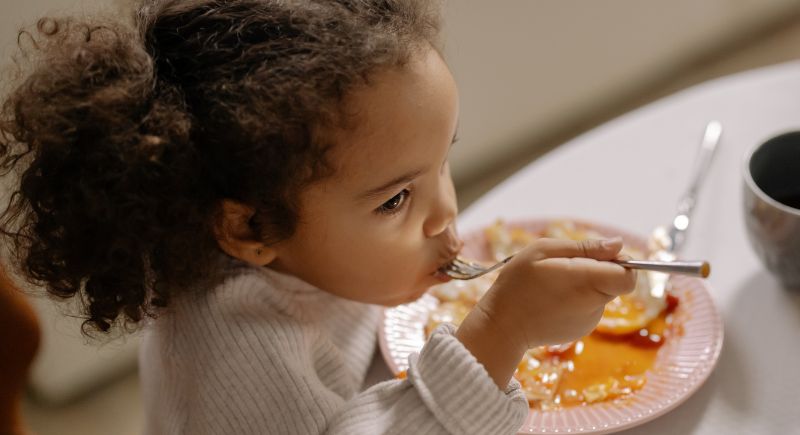
They’re not going to finish those peas out of guilt. If anything, they’ll resent you for making mealtime a lecture. Encouraging healthy eating is great, but using guilt trips isn’t. Instead, try, “Want to grow as strong as your beloved superhero? A few more bites will help!”
“You don’t need that—you already have enough toys!”

To them, there’s no such thing as enough toys. They’re not asking for a new one because they need it; they just want it. A better response would be to say, “That looks really cool! Maybe we can put it on your birthday list.” It acknowledges their excitement without shutting them down.
“Why are you crying? There’s nothing to be upset about!”

Even if their meltdown seems dramatic, their feelings are real. Brushing off their emotions teaches them to bottle things up. Instead, try, “I can see you’re upset. Want to talk about it?” Sometimes, just knowing they’re being heard is enough to calm them down.
“Are you sure you want to wear that?”
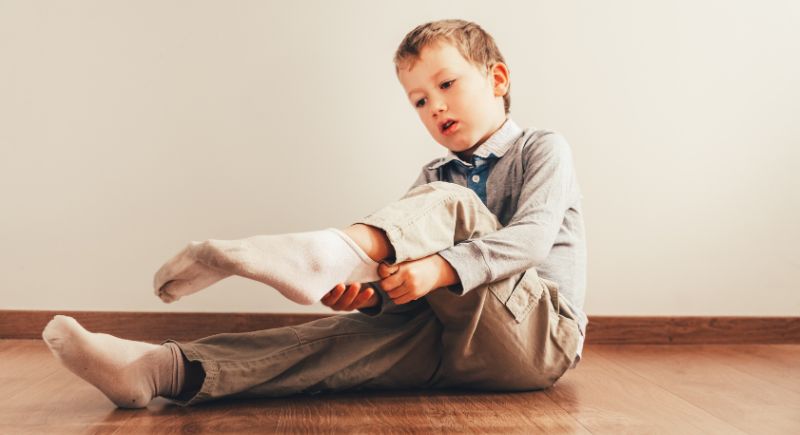
They are sure. And now, thanks to your comment, they’re second-guessing themselves. Kids express themselves through clothes, even if their fashion choices seem… questionable. Let them rock that mismatched outfit with confidence. If it’s not hurting anyone, what’s the harm?
“Back in my day, we actually played outside.”
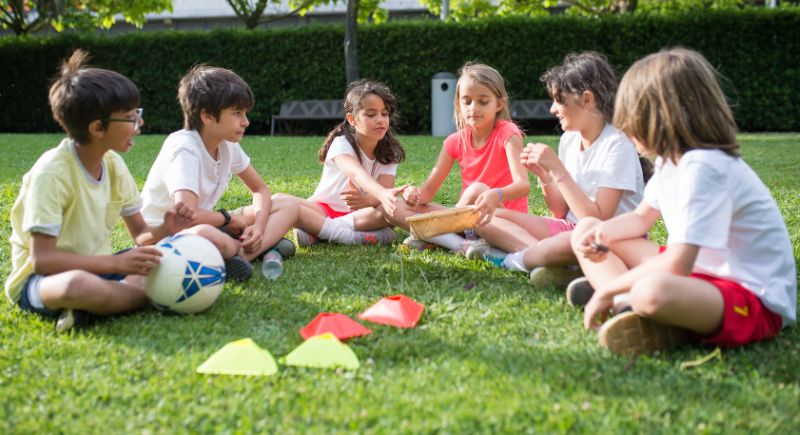
They get it—you think screens are taking over. But to them, gaming with friends online is socializing. Instead of making them feel bad about their hobbies, try suggesting an outdoor activity that sounds fun. A nature scavenger hunt? A trip to the park? Now that’s a plan.
“That’s not how you do it—let me show you the right way.”

Nothing crushes confidence faster than hearing they’re doing something wrong. If they’re building a tower all wrong or coloring outside the lines, let it happen. Learning comes from trying, not being corrected every five seconds. If they ask for help, that’s your moment to shine.
“You’ll understand when you’re older.”

This is a non-answer, and kids hate it. If they’re asking questions, they’re curious. Instead of dismissing them, you could try breaking things down in a way that they can understand. Even complex topics can be explained simply—it just takes a little effort.
“Boys don’t cry” or “That’s not very ladylike.”

Old-school gender rules don’t belong in today’s world. Modern kids should feel free to express themselves without being boxed in by outdated expectations. Let them be themselves—loud, quiet, messy, sensitive, bold, or anything in between.
“You’re acting just like your mother/father.”
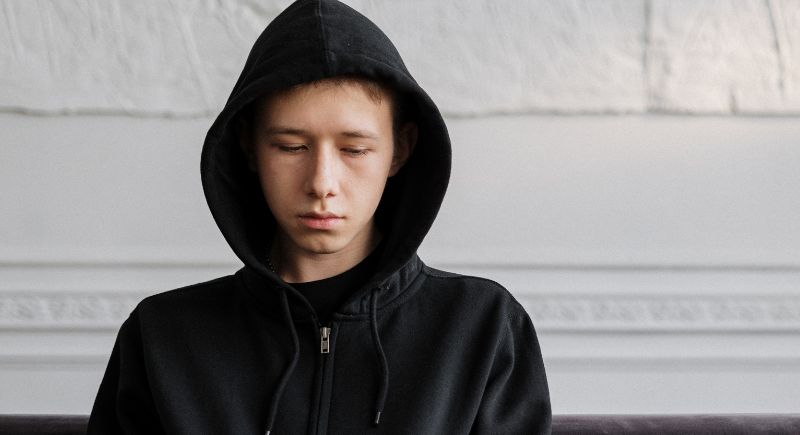
Whether it’s meant as a compliment or criticism, this puts them in an uncomfortable position. Kids don’t want to be compared to their parents, especially during a meltdown. If they’re acting up, focus on their behavior—not where you think it came from.
“You’re too old for that.”

Are your grandkids still carrying around that stuffed animal or watching cartoons you thought they outgrew? Let them be. Childhood is short, and growing up happens fast enough. If they still love something, why rush them out of it?
“You should give [insert relative] a hug.”

Affection should always be a choice. If they don’t want to hug someone, respect that. Forced hugs send the wrong message about personal boundaries. A simple “Would you like to give a hug or a high five?” gives them control while keeping things polite.
“Oh, don’t be shy!”
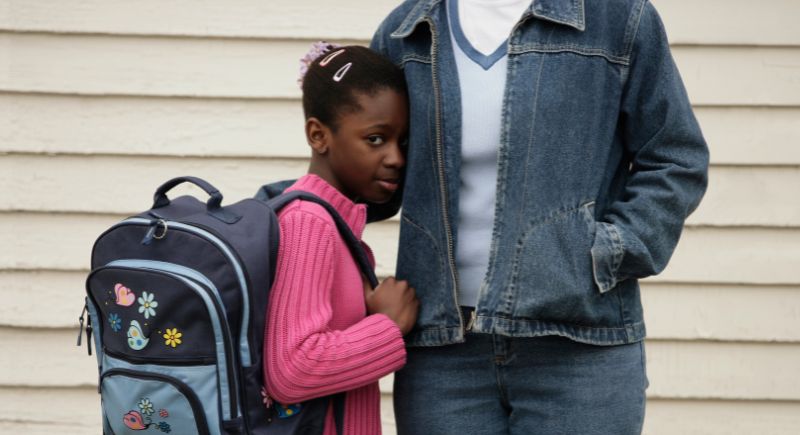
Some kids are shy, and that’s okay. Calling it out just makes them feel more self-conscious. Instead, let them warm up at their own pace. A quiet kid isn’t a broken one—some just take a little longer to feel comfortable.
“You shouldn’t be afraid of that.”
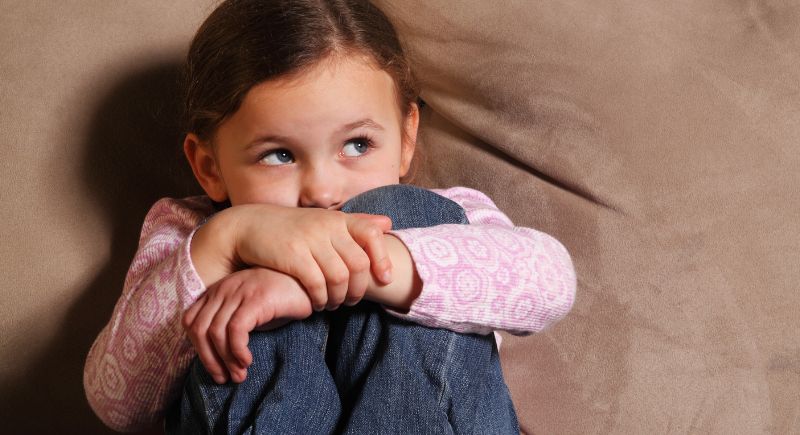
Fear isn’t rational—it’s emotional. Telling them their fear is silly won’t make it go away. Instead, try, “I know that seems scary. Want to talk about it?” Facing fears takes time, and knowing they have support makes all the difference.
“Why can’t you be more like [another sibling/cousin/friend]?”
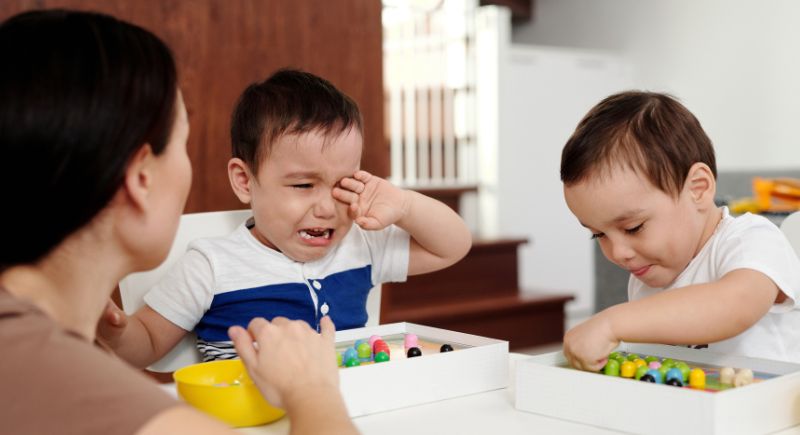
Comparison only breeds resentment. Every kid is different—some loud, some quiet, some athletic, some artistic. Instead of pointing out how they don’t measure up, celebrate what makes them special. They’ll remember your words, good or bad, for years to come.
“I don’t have time for this.”

Nothing stings like feeling unimportant. Even if you’re busy, taking a moment to acknowledge them makes all the difference. A simple “Give me five minutes, and then I’m all yours” reassures them that they do matter.
“That’s Not a Real Job”

Telling someone, “That’s not a real job,” can crush a young dream before it even starts. Kids look up to their parents and grandparents for support, not skepticism. Instead of dismissing their passions, ask them what excites them about it and cheer them on, even if you don’t fully understand it.
“Your Generation Has It So Easy”

Telling kids “Your generation has it so easy” can make them feel guilty or misunderstood. It creates a divide instead of a connection. Instead, talk about the fun parts of your own childhood and ask about their favorite things today. This will open up a warm, supportive conversation instead of judgment.